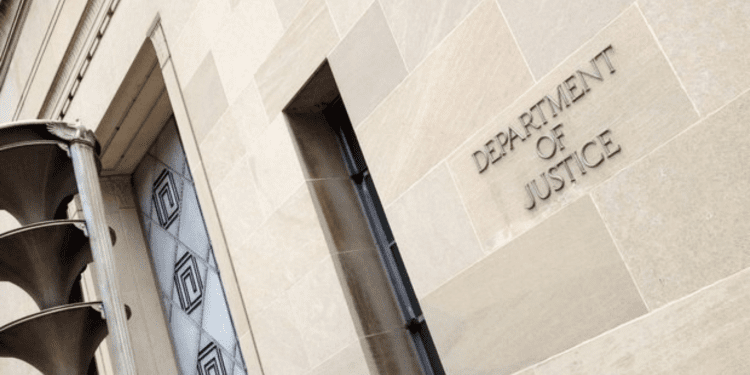The collapse of Signature Bank serves as a warning of the possible risks in this area and the significance of maintaining diligent procedures to prevent illegal conduct as regulators continue to strengthen their scrutiny of companies handling cryptocurrencies.
- The DOJ and SEC were looking into whether Signature Bank’s dealings with bitcoin clients may have involved money laundering.
- To reduce possible threats to the financial system, regulators have urged banks and other regulated companies to reduce their holdings in digital currencies and other assets.
DOJ Investigation
When regulators took control of the lender last weekend, US prosecutors had started a probe into Signature Bank’s dealings with cryptocurrency clients. According to insiders, Justice Department officials in Manhattan and Washington were looking into the New York bank’s efforts to prevent potential money laundering by screening account applicants and monitoring transactions for signs of criminal activity.
Also, the Securities and Exchange Commission was looking into the bank’s operations. Nevertheless, neither the Federal Deposit Insurance Corp (FDIC), which now owns the corporation, nor the organization the government created after the seizure would offer any comments on the matter.
Representatives of the SEC, the US Attorney’s Office in Manhattan, and the Justice Department declined to comment. On Sunday, when authorities began taking action to shut down Signature and help US lenders, Gary Gensler, the chairman of the SEC, released a statement. According to him, the agency will look into any violations of federal securities laws and take appropriate enforcement action.
Bank and Staff not Accused of Wrongdoing
It is uncertain when the investigations into Signature Bank started or whether they impacted the state regulators’ decision to close the bank on Sunday, even though the bank and its employees have not been charged with any wrongdoing. State authorities lost faith in management since the bank could not provide “reliable and consistent data.”
Increased Scrutiny on Firms Handling Cryptocurrency
After the confiscation, the FDIC started looking for a bidder. Authorities have issued warnings to companies working with cryptocurrencies or related funds, advising them to be vigilant in identifying customers and ensuring that money transfers are for lawful purposes. All anomalous transactions must be reported to federal authorities, especially by banks.
Michael Driscoll, the FBI’s assistant director in charge of the New York field office, issued a warning after the US filed charges against the operator of a cryptocurrency exchange in January, saying that the FBI and its allies remained dedicated to keeping cryptocurrency markets free from illegal activity.
Silicon Valley Bank of SVB Financial Group, which also provided services to the cryptocurrency industry, and Silvergate Capital Corp failed last week and are now under US investigation. Federal prosecutors and the SEC are looking into the collapse of Silicon Valley Bank, including whether executive stock sales violated trading regulations, while the Justice Department is looking into Silvergate’s interactions with Sam Bankman-now-defunct Fried’s FTX exchange and Alameda Research.
Signature Bank did not mention the inquiries in its most recent filings. Executives at Signature stated they expected to withdraw up to $10 billion in deposits from clients who held digital assets after FTX collapsed in November, which at the time constituted more than a quarter of their deposit base. They still intended to hold onto some deposits and remain active in the area.
Conclusion
The investigations by authorities and the Justice Department into the transactions of Signature Bank with crypto clients, coupled with the bank’s failure to produce “reliable and consistent data,” led to state regulators taking over the bank on Sunday. Since then, the FDIC has begun looking for a buyer. The failure of Signature Bank, Silvergate Capital, and Silicon Valley Bank highlights the difficulties that banks and other regulated businesses encounter when managing digital currencies and other assets to reduce possible hazards to the financial system.














